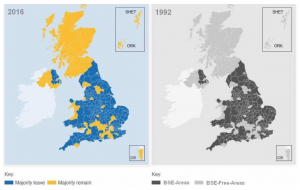Distinctions between ethnographic and phenomenological interviews are profound and extremely important to maintain. In Research Decisions, Palys & Atchison allocate just two introductory pages to phenomenology, which is reframed as a philosophy of phenomenologism. Why is that?
In the glossary, P&A write that phenomenologism is “an approach to understanding whose adherents assert that we must ‘get inside people’s heads’ to understand how they perceive and interpret the world” (p. 425).
Can or should the phenomenologist or ethnographer ‘get inside people’s heads’? is this one of the purposes of research with human subjects via ethnographic and phenomenological methods? Add to this, historical methods, etc.?
In “Culture and Causality,” Fricke resolves at length:
It is true… that we cannot get inside people’s heads to actually know what motivates them or how they see the world. It is true, in other words, that we operate in terms of theories. But this is the same context within which we live our everyday lives. If I ask myself the ques- tion in my everyday dealings with people, “Why did she do that?,” I seek an answer as an attempt to understand that person’s view of the world, her motivations, and the concrete circumstances of a situation. I acknowledge, if I want to get as close to the true reasons as possible, that I might be wrong in my interpretation and that more information, or the reach for more consistency in light of the available information, may cause me to modify my initial understanding. If the thing I seek to explain is important, or if the person is particularly important to me, I may try to include information about her past history and wider networks of kin and association.
In some ways, anthropological fieldwork replicates this prosaic operation of the everyday. Our attempts at understanding are imaginative acts in which we try to get inside of the head of the cultural other. (pp. 476-477)
What do you think? Is this made obvious in research 2.0?


